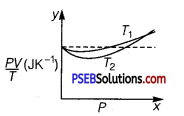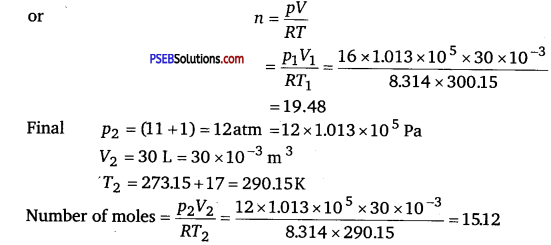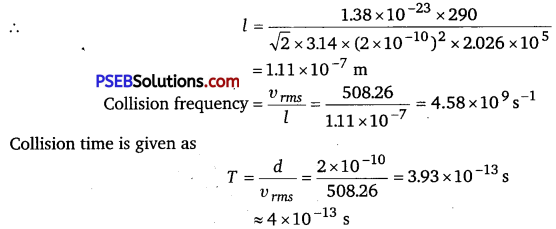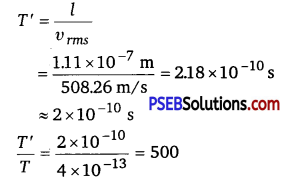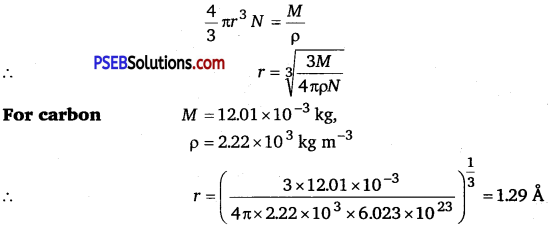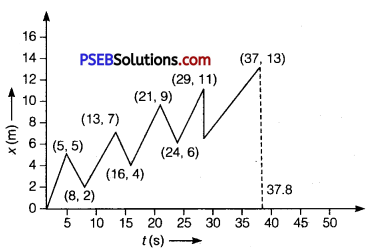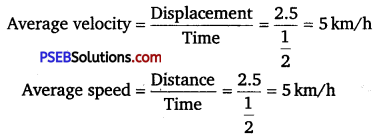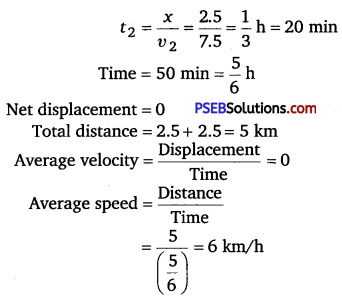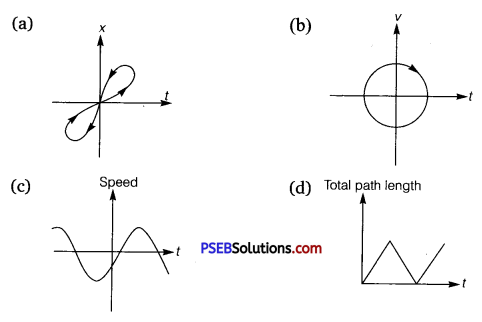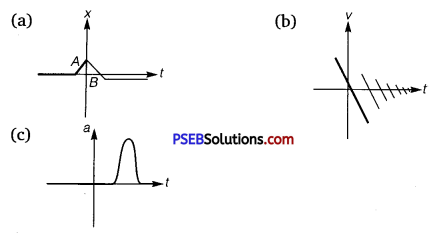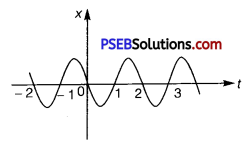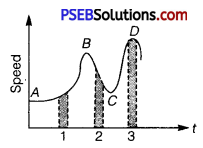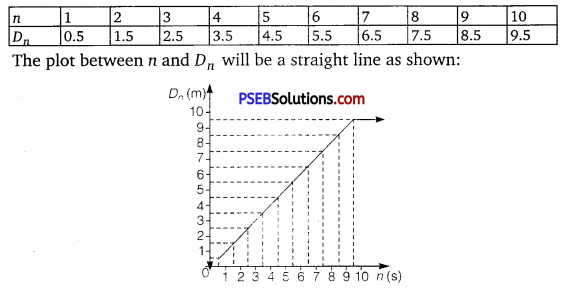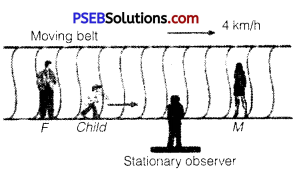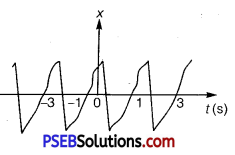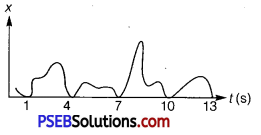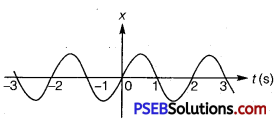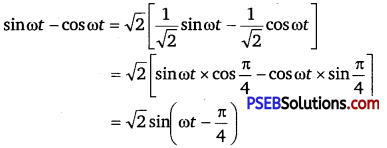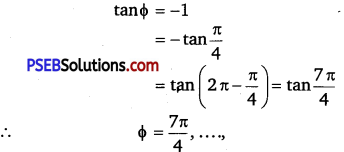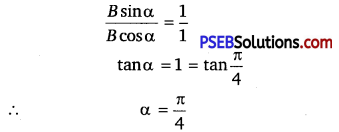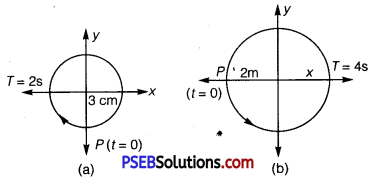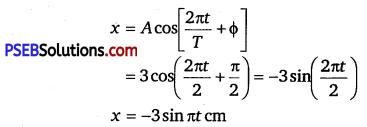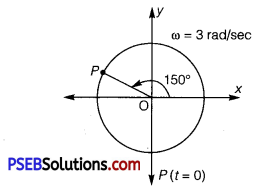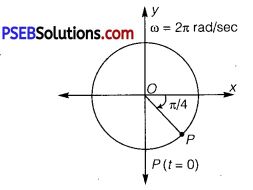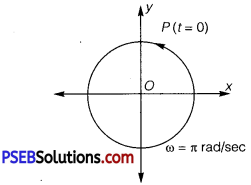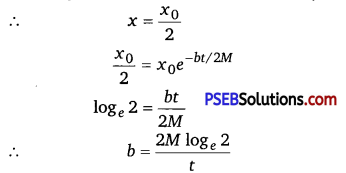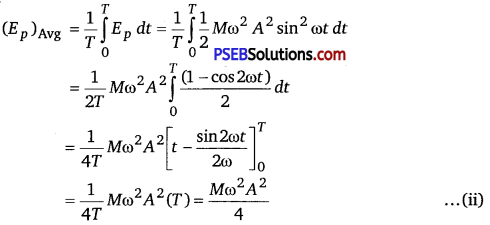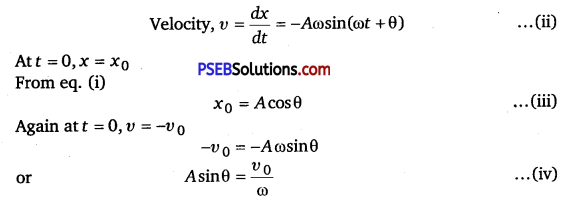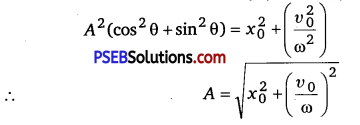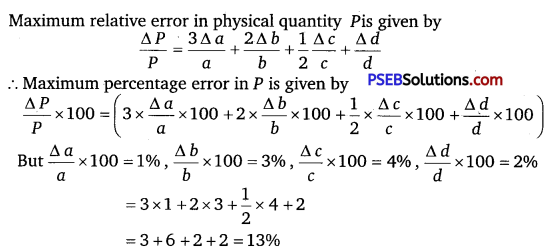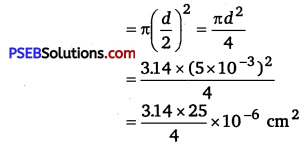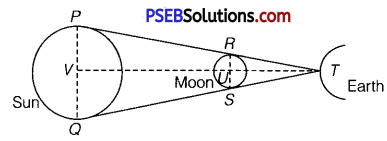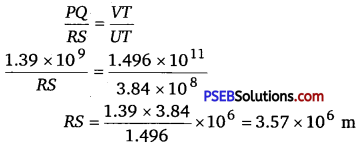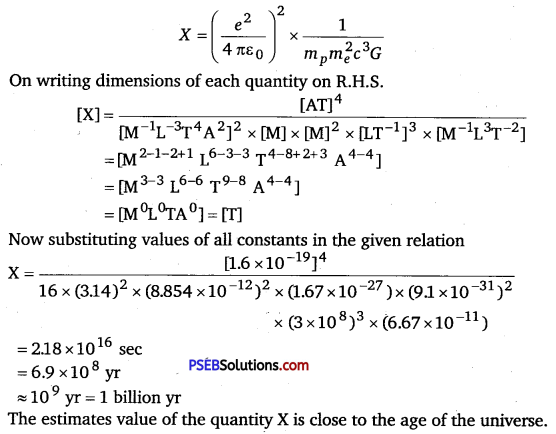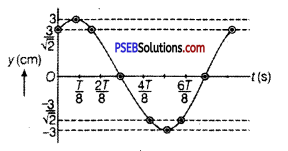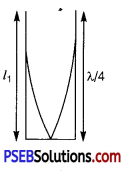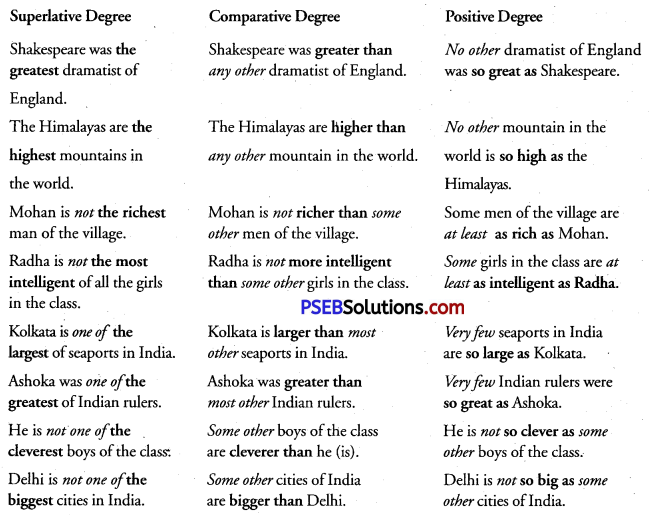Punjab State Board PSEB 11th Class English Book Solutions English Reading Comprehension Unseen Passages Exercise Questions and Answers, Notes.
PSEB 11th Class English Reading Comprehension Unseen Passages
Examination-Style Fully Solved Passages
Passage 1
In many countries, only one language, the mother tongue, is enough to satisfy the need for expression of most of their inhabitants2. In India, however, the position is more complicated3. Here, an educated man is called upon to master more than one language. There is, first of all, the language that he learns on his mother’s lap, and through which he expresses his first needs and feelings. Naturally, it is in this that he gains the most proficiency4. But since India is a very large country, we really need an extra language – a lingua franca) — as a means of communication with states other than our own. But even this is not enough. An educated Indian also requires the mastery of an international language, one that is widely understood and is used in the dealings of one country with another. Ideally speaking then, an educated Indian should be able to read and write in three languages, and moreover, should be able to express himself in all three with ease and fluency’.
Question 1.
In many countries, only ………… is enough for people to express their ideas.
(a) mother tongue
(b) a foreign language
(c) local language
(d) none of the above.
Answer:
(a) mother tongue

Question 2.
In India, an educated man is expected to master …………….
(a) his mother tongue
(b) a foreign language
(c) more than one language
(d) the national language.
Answer:
(c) more than one language
Question 3.
What purpose does the language used by us serve ?
Answer:
It serves our need for expression and communication.
Question 4.
What is the position in India regarding the languages ?
Answer:
Here an educated person is expected to master three lauguages – the mother tongue, a lingua franca and a foreign language.
Question 5.
An educated Indian is supposed to be able to read and write in ……….. languages.
Answer:
three.
Question 6.
Match the words in column A with their meanings in column B.
| A |
B |
| big |
most |
| sufficient |
enough |
|
large |
Answer:
big – large;
sufficient – enough.
Passage 2
Food can maintain? or save life. It can destroy life as well. Proper food serves the purpose of medicine. Improper food works as poison and causes diseases. We may take pride in calling ourselves civilized; but we flout? all the norms about the quality or quantity of food. We mostly eat processed foods. We have drifted away from mother nature. Thus the incidence of diabetes has increased very much. According to a survey, diabetes was rare in the natives of Canada a few years ago. With the advent of processed and junk foods, the incidence of diabetes has shot up within a very short time. By offering chocolates, cakes and ice creams too often to our children and by attending parties every other day, we in fact, invite obesity and diabetes.

Question 1.
Food can …………… our life.
(a) maintain
(b) save
(c) destroy
(d) all the above.
Answer:
(d) all the above.
Question 2.
The incidence of diabetes has …………… very much.
(a) decreased
(b) drifted
(c) increased
(d) rare.
Answer:
(c) increased
Question 3.
What is improper food ?
Answer:
Food that is harmful to health is improper food.
Question 4.
How have we changed our food habits ?
Answer:
We have started eating processed foods.
Question 5.
Diabates used to be ………… in the natives of Canada earlier.
Answer:
rare.
Question 6.
Match the words in column A with their opposites in column B.
| A |
B |
| destroy |
advent |
| mostly |
create |
|
rarely |
Answer:
destory → create;
mostly → rarely.
Passage 3
Among the manifold’ misfortunes that may befall humanity, the loss of health is one of the severest?. All the joys, which life can give, can’t outweigh the suffering of the sick. Give the sick man everything and leave him with his suffering, he will feel half the world is lost to him. Lay him on a soft silken couch3, he will nevertheless4 groan sleepless under the presence of his suffering, while the miserable beggar, blessed with health, sleeps sweetly on the hard ground. Spread his table with dainty meals and choicest drinks and he will thrust back the hand that proffers them, and envy the poor man who thoroughly enjoys his dry crust. Surround him with the pomp of kings; let his chair be a throne and his crutch a world-swaying sceptre, he will look with contemptuous eyes on marble, on gold, on purple, and would deem himself happy, could he enjoy, even were it under a thatched roof, the health of the meanest of his servants.

Question 1.
Loss of ………….. is one of the severest misfortunes.
(a) joy
(b) health
(c) money
(d) humanity.
Answer:
(b) health
Question 2.
The man who is suffering will be happy to ……..
(a) get marble
(b) receive gold
(c) be blessed with purple
(d) get back good health.
Answer:
(d) get back good health.
Question 3.
Which misfortune is regarded as one of the severest ?
Answer:
Loss of health is regarded as one of the severest misfortunes.
Question 4.
What is the strongest wish of a sick man ?
Answer:
His strongest wish is to get rid of his suffering.
Question 5.
A sick man will hate-marble, gold or …………..
Answer:
purple.
Question 6.
Match the words in column A with their meanings in column B.
| A |
B |
| purpose |
result |
| obesity |
fatness |
|
aim |
Answer:
purpose → aim;
abesity → fatness.
Passage 4
Good manners are not inherited?. And they don’t come naturally to intelligent people. They have to be learnt and practised. They are based upon the concept of consideration3 for others. They are easy to acquire4 and there is nothing more profitable. Good manners are a necessary complement in every walk of life, especially in business. Organisations with competent and well-mannered representatives enjoy a good reputation. The morale8, productivity and profits of such an organisation will be high. And this, in turn, will attract more business. There is no particular place or time when a person should show or begin his elementaryo courtesy. Courtesy, etiquette 10 and manners are tools that one should always carry with oneself, wherever one goes. The first step to success in life is treating others as courteously as we would wish others to treat us.

Question 1.
Good manners don’t come ………. to intelligent people.
(a) ever
(b) unnaturally
(c) easily
(d) naturally.
Answer:
(d) naturally.
Question 2.
Good manners are more ………….. than any other thing.
(a) inherited
(b) profitable
(c) difficult
(d) practised.
Answer:
(b) profitable

Question 3.
What are good manners ?
Answer:
Good manners mean a consideration for others.
Question 4.
How are good manners aequired ?
Answer:
Good manners have to be learnt and practised.
Question 5.
We must treat others as ………….. as we would wish them to treat us.
Answer:
courteously.
Question 6.
Match the words in column A with their opposites in column B.
| A |
B |
| naturally |
nowhere |
| everywhere |
artificially |
|
particularly |
Answer:
naturally → artificially;
everywhere → nowhere.
Passage 5
For a student, walking is preferable to all other exercises. The advantage of this model of exercise is that it is simple. The apparatus2 is all at hand. You need not wait for the importationof machinery. It is in the open air that the lungs can at once receive the pure air of heaven and the eyes gaze upon hill and dale“, upon trees and flowers, upon the objects animate and inanimates. The very objects of sight and sound cheer the mind and raise the spirit. Another advantage of walking is that you can have a friend to walk with and unbend the mind by pleasant conversation. Once try the method of walking with a friend regularly for a few weeks and you will be surprised at the marvellouso results. On those afternoons when study is not required, be sure to take a long walk and lay up health for days to come.

Question 1.
The advantage of walking is that it is ………..
(a) complicated
(b) tough
(c) simple
(d) energy-giving.
Answer:
(c) simple
Question 2.
The objects of sight and sound ………….. the mind.
(a) lift
(b) increase
(c) sharpan
(d) cheer.
Answer:
(d) cheer.
Question 3.
Which exercise is preferable for a student ?
Answer:
For a student, walking is preferable to all other exercises.
Question 4.
How are the lungs of a walker benefited ?
Answer:
His lungs receive the pure air of heaven.
Question 5.
The advantage of walking is that it is ………..
Answer:
simple.
Question 6.
Match the words in column A with their meanings in column B.
| A |
B |
| advantage |
benefit |
| heaven |
export |
|
paradise |
Answer:
advantage → benefit;
heaven → paradise.
Passage 6
If a man’s house is full of bottles of medicines, we think that the man is probably sick; but if his house is full of books, we concludea that he is intelligent. We consider the bottles of medicines as the sign of a sick body, but we do not consider the books as the sign of a sick mind. Surely that is not right. The wise men of the past took no pains to make life literate”; but they did much to make it meaningful. Books, after all, contain only letters. It is useless to hope to make life meaningful merelys by collecting books. Can we know swimming merely by reading a book on swimming ?
Real knowledge is to be found in life itself. Until we understand this, we shall never taste true knowledge.

Question 1.
There will be many bottles of medicines in a …………… man’s house.
(a) sick
(b) healthy
(c) plump
(d) weak.
Answer:
(a) sick
Question 2.
The wise men of the past did much to make life
(a) easy
(b) simple
(c) luxurious
(d) meaningful.
Answer:
(d) meaningful.
Question 3.
What will we think if we see bottles of medicines in somebody’s house ?
Answer:
We will think that the man is probably sick.
Question 4.
What did the wise men of the past want to do?
Answer:
They wanted to make the life meaningful.
Question 5.
Real knowledge is to be found in ………….. itself.
Answer:
life.
Question 6.
Match the words in column A with their opposites in column B.
| Α |
B |
| sick |
wrong |
| Right |
healthy |
|
Read |
Answer:
sick → healthy;
right → wrong.
Passage 7
People fight to settle disputes. Fighting means killing and civilized’ people ought to be able to find some way of settling their disputes? other than by seeing which side can kill the greater number of the other side, and then saying that the side which has killed most has won; and not only has won, but because it has won has been in the right. For that is what going to war means; it means saying that might is right. That is what the history of mankind on the whole has been like. Even our own age has fought the two greatest wars in history, in which millions of people were killed and mutilated.
And today while it is true that people don’t fight and kill each other in the streets, this is to say, we have got to the stage of keeping the rules or behaving properly towards each other in daily life, nations and countries have not learnt to do this yet and still behave like savages.

Question 1.
Civilized people do not indulge in …………
(a) killings
(b) parties
(c) donations
(d) gambling.
Answer:
(a) killings
Question 2.
Our age has fought two ………….. wars in history.
(a) recorded
(b) greatest
(c) atomic
(d) important.
Answer:
(b) greatest
Question 3.
What should civilized people do ?
Answer:
They should find some peaceful way to settle their disputes.

Question 4.
What does ‘might is right’ mean?
Answer:
It means that the person who wins thinks himself to be right.
Question 5.
Now people don’t fight and kill each other in ……….
Answer:
streets.
Question 6.
Match the words in column A with their meanings in column B.
| A |
B |
| dispute |
treatment |
| behaviour |
disagreement |
|
action |
Answer:
dispute → disagreement;
behaviour → treatment.
Passage 8
Cheating in examinations is a major defectof our educational system. Cheating has become so common that students consider it their birthright to use unfair means in the examination. The root cause of this evil lies in our schools. Short-cuts have replaced hard labour. Guides and notes are encouraged in place of textbooks. In all school examinations, except the Middle and the Matric examinations, teachers show leniency3 to the students and pass most of them. Sometimes, even the parents are at fault. They get their undeserving wards promoted“ to the higher class. The students don’t cultivate the habit of self-study and hard work. Then in the Board Examination, students resort to copying. The teachers on duty encourage the students to use unfair means to pass the examinations. The desire to show good results motivates them to adopt wrong methods.

Question
1. Students consider it their ………….. to cheat in examinations.
(a) rule
(b) duty
(c) responsibility
(d) birthright.
Answers:
(d) birthright.
Question 2.
The teachers on duty …………. students to use unfair means.
(a) deny
(b) refuse
(c) encourage
(d) discourage.
Answers:
(c) encourage
Question 3.
What does the given passage call as the major defect?
Answers:
It calls cheating in examinations as the major defect.
Question 4.
How are the parents responsible for the evil of cheating?
Answers:
They want their undeserving wards promoted to their higher class.
Question 5.
The students don’t cultivate the habit of ………….. and …………. work.
Answers:
self-study, hard.
Question 6.
Match the words in column A with their meanings in column B.
| A |
B |
| major |
defect |
| fault |
leniency |
|
biggest |
Answers:
major → biggest;
fault → defect.
Passage 9
Living on the earth is rather like being at the bottom of a sea hundreds of miles deep. Without atmosphere, there would be no people or animals, birds or fishes, trees or plants. There would be no weather, winds or rain. And there would be no blue sky, no rosy sunsets or dawns. Fire would be impossible without air, for burning is the union of oxygen with whatever is burned. Nor would there be any noise, which is the vibration? of air waves against our eardrums.
By day, the atmosphere serves as a great sunshade. It protects3 the earth from the full force of the sun by absorbing most of its harmful radiation4. But for the atmosphere, the daytime temperature would rise to 230 degrees Fahrenheit, hotter than boiling water. By night, the air acts like a giant greenhouse. It imprisons the heat collected during the day and prevents it from spreading into space.

Question 1.
Without …………., there would be no life on the earth.
(a) atmosphere
(b) gases
(c) sea
(d) weather.
Answer:
(a) atmosphere
Question 2.
By day, the atmosphere serves as a great ………….. .
(a) ball
(b) star
(c) sunshade
(d) vibration.
Answer:
(c) sunshade
Question 3.
What is living on the earth like ?
Answer:
It is like being at the bottom of a deep sea.
Question 4.
What does the atmosphere serve as ?
Answer:
It serves as a great sunshade.
Question 5.
By night, the air acts like a giant ……………
Answer:
greenhouse.
Question 6.
Match the words in column A with their opposites in column B.
| A |
B |
| bottom |
enjoy |
| protect |
top |
|
kill |
Answer:
bottom → top;
protect → kill.
Passage 10
Subhash Chandra Bose was a great leader of India. He was born on 23rd January 1896. People called him ‘Netaji’ because he led them to the right path. He went to jail many times. Soon he found out that more efforts had to be made to make India free. The British power was getting weakened in the second world war. He thought of striking it from all sides. One day, he escapedfrom Kolkata in the guise of a Pathan and went to Germany. From there, he went to Japan. He organised the Indian National Army that fought many battles against the British armies. He said to his countrymen, “Give me blood and I will give you freedom.” At this appeal, hundreds of Indians abroad4 gave their all for the good of India. It was a bad day for India when Netaji died in an air crash. We shall always remember him as the greatest fighter for the freedom of India.

Question 1.
People called Subhash Chandra Bose as ………….. .
(a) Netaji
(b) great leader
(c) a revolutionary
(d) great guide.
Answer:
(a) Netaji
Question 2.
His army fought many battles against the ………….. army.
(a) British
(b) German
(c) Japanese
(d) foreign.
Answer:
(a) British
Question 3.
Why did the people call Bose as ‘Netaji’?
Answer:
Because he led them to the right path.
Question 4.
What did he organize ? Why?
Answer:
He organised Indian National Army to fight British armies.
Question 5.
His slogan was ‘Give me …………. and I will give you freedom.
Answer:
blood.
Question 6.
Match the words in column A with their meanings in column B.
| A |
B |
| effort |
correct |
| right |
endeavour |
|
up |
Answer:
effort → endeavour;
right → correct.
Passage 11
Deserts are wild waste stretches of land, usually covered with sand, where little can grow and few can live. There are deserts in Africa, Asia, Australia and America, but the greatest and the most famous is the Sahara covering about 35 lakh square miles of northern Africa. It extends from the Mediterranean southward to the Sudan, and from the Red Sea westward to the Atlantic Ocean.
Crossing a desert has always been a risky adventure. Temperatures are very high during the day and may fall below zero at night. Going from one oasis! to another may be a march of several days. The lack of water, the fierce? rays of the sun, sandstorms and other hardships have always made journeys across such deserts as the Sahara the worst kind of travel in the world. The old tracks across the sand are lined with the bones of men and beasts that have met their fate. Horses and oxen are not suited to these conditions and the only animal that can be used is the camel, which has a peculiar stomach in which water can be stored. Besides being able to go for three days without drinking, it can also live for a long time on small quantities of food. Since ancient times, the camel has been called the ship of the desert’.

Question 1.
Deserts are wild waste …………. of land covered with sand.
(a) stretches
(b) spread
(c) spaces
(d) places.
Answer:
(a) stretches
Question 2.
Crossing a desert has always been a ………….. adventure.
(a) huge
(b) giant
(c) risky
(d) preferable.
Answer:
(c) risky
Question 3.
What is a desert ?
Answer:
A desert is a wild waste stretch of land covered with sand.

Question 4.
What is the camel called since ancient times ?
Answer:
It has been called the ship of the desert.
Question 5.
………….. is a place in the desert where some plants grow.
Answer:
Oasis.
Question 6.
Match the words in column A with their meanings in column B.
| A |
B |
| lack |
shortage |
| beasts |
vegetation |
|
animals |
Answer:
lack → shortage;
beasts → animals.
Passage 12
In the modern times, with the coming of the motor cars and the aeroplanes, the desert may be said to have been conquered as far as travel is concerned. There are still special dangers for the car, including breakdowns, but an aeroplane can fly over a desert as easily as anywhere else. However the journey is made, wireless messages can be sent out if help is needed.
Yet in other ways, the desert has not yielded. It is the enemy and never the friend of man. Just as the sea, year after year, gradually eats away the land, so the sand of the desert, blown by the winds, advances yard by yard over the cultivated? fields. The remains of the old towns and villages, half-buried in the sand show that men once lived and grew their crops where there is no life today. One of the problems of the present century is how to stop this continuous extension4 of sandy wastes and save food-producing districts from destruction.

Question 1.
What modes of transport have been mentioned in the passage ?
(a) Motor cars.
(b) Aeroplanes.
(c) Both (a) & (b).
(d) Camels.
Answer:
(c) Both (a) & (b).
Question 2.
If help is needed, …………. message can be sent.
(a) telegraphic
(b) telephone
(c) wireless
(d) satellite.
Answer:
(c) wireless
Question 3.
What does the author think about the desert ?
Answer:
He thinks that the desert is an eneny which can never be a friend of man.
Question 4.
What is the problem of the present century ?
Answer:
It is how to stop the continuous extension of sandy wastes.
Question 5.
The desert is …………… the friend of man.
Answer:
never.
Question 6.
Match the words in column A with their opposites in column B.
| А |
B |
| modern |
friend |
| foe |
ancient |
|
enemy |
Answer:
modern → ancient;
foe → friend.
Passage 13
In India, every boy and every girl now reading in schools is the future citizen of the country. Although he or she is not immediately called upon to vote or to make laws, he or she will have to do this in the near future. As the citizen of tomorrow, every young man should, therefore, prepare himself for the great task. The young citizen’s first duty is to learn how not to hurt- others, to be careful not to play unfairly, in the playing field, and not to speak a word which may give pain to anyone, not to make fun of others, or say things behind one’s back. He should not waste or throw away a grain4 of food, considering that there are many poor people in India who do not have enough to eat. Lastly, he should get training in the use of his leisure”.

Question 1.
Every …………. reading in schools in the future citizen of the country.
(a) boy
(b) girl
(c) both (a) and (b)
(d) child.
Answer:
(c) both (a) and (b)
Question 2.
We should not waste or throw a …………… of food.
(a) piece
(b) fragment
(c) grain
(d) lot.
Answer:
(c) grain
Question 3.
What is the great task of a citizen ?
Answer:
It is to lead a disciplined life.
Question 4.
Who is the future citizen of the country ?
Answer:
Every school-going boy and girl.
Question 5.
We should not waste or …………… away even a grain of food.
Answer:
throw.
Question 6.
Match the words in column A with their meanings in column B.
| A |
B |
| hurt |
sufficient |
| enough |
injure |
|
lack |
Answer:
hurt → injure;
enough → sufficient.
Passage 14
Gandhiji’s mother was a very sweet, kind and religious woman. She visited the temple daily, often taking her little son with her. She fasted frequently2, too. Once she made a vow to eat only one meal a day for four months, and not to take even that one meal unless she had first seen sunshine. As she had made this vow in the rainy season, it was often difficult to see sunshine at all. Her children, who could not bear4 to think of their dear mother going without food all the twenty-four hours, would stand staring up at the sky waiting to catch the first gleams of the sun.
As soon as a ray appeared, they would dash? into the house and call their mother to come and see for herself. By the time she came out, the sun had often gone behind the clouds again. “It does not matter,” she would say cheerfully. “God does not want me to eat today,” and back she would go to her household tasks. In this way, Gandhiji learnt from his good mother how to do penance cheerfully for love of God.

Question 1.
Gandhiji’s mother was a very …………… woman.
(a) sweet
(b) kind
(c) religious
(d) all of the above.
Answer:
(d) all of the above.
Question 2.
Gandhiji’s mother made the vow in the …………. season.
(a) summer
(b) rainy
(c) pleasant
(d) rough.
Answer:
(b) rainy
Question 3.
What could the children not bear?
Answer:
They could not bear their mother going without food all the 24 hours.
Question 4.
What did Gandhiji learn from his mother?
Answer:
He learnt from his mother how to do penance cheerfully.
Question 5.
In the rainy season, it was often difficult to see …………… at all.
Answer:
sunshine.
Question 6.
Match the words in column A with their opposites in column B.
| Α |
B |
| sweet |
cruel. |
| kind |
noble |
|
bitter |
Answer:
sweet → bitter;
kind → cruel.
Passages From Grammar Book (Fully Solved)
Passage 1
There are in our country, as in other countries of the world, thousands of differently abled persons, such as those who are blind or deaf and dumb. In some cases, these persons may have been born blind or deaf while in others, they may have gone blind or deaf as a result of some illness or accident.
You sometimes hear people say of such handicapped persons : “It is the work of fate.” or “It is the will of God.” Some even say, “They suffer the fruits’ of their own actions in the past.” Even the parents of differently abled children often express such feelings and opinions, and they scarcely ever think of how they can help these unfortunate ones. This certainly is not the way to look at the problems of the differently abled.
Whatever may be the cause of their suffering, we have got to treat the differently abled with sympathy and understanding. In many instances, physically challenged children suffer neglect and are left to themselves in their homes.
This makes their life extremely sad and lonely3. Our first duty is to make these children happier and less lonely by engaging them in different activities suitable for them. Secondly, we have got to educate these children and help them to live meaningful lives. We should secure“ benefits of education for them in schools intended for them. We ought to make them self-reliant by creating suitable opportunities for them. They will then have a sense of achievement. We will also feel satisfied that we have done our duty towards them.

Question 1.
How should we treat the differently abled children ?
(a) Indifferently.
(b) With sympathy and understanding.
(c) By ignoring their loneliness.
(d) By neglecting them.
Answer:
(b) With sympathy and understanding.

Question 2.
According to the author, what is our first duty towards handicapped children ?
(a) To make them homeless.
(b) To make them healthy.
(c) To make them happier and less lonely.
(d) To make them run fast.
Answer:
(c) To make them happier and less lonely.
Question 3.
How do some children become differently abled ?
Answer:
Some of them may be born handicapped, e.g. deaf, dumb, etc. Others may become handicapped later due to some illness or accident.
Question 4.
What makes the life of handicapped children sad and lonely?
Answer:
The handicapped children start feeling sad and lonely when they have to suffer neglect and are left to their lot in their homes.
Question 5.
Fill in the blank with a suitable word from the passage.
We must ……… these children with love and sympathy.
Answer:
treat.
Question 6.
Match the words under column A with their meanings in column B:
| A |
B |
| sympathy |
sad |
| unhappy |
nearly |
|
feeling pity and tenderness |
Answer:
sympathy → feeling pity and tenderness;
unhappy → sad.
Passage 2
In a reversal of the norm elsewhere, in India policy-makers and economists have become optimists’ while bosses do the worrying. The country’s Central Bank has predicted that India’s economy is likely to grow at a double-digit rate during the next 20-30 years. India has the capability with its vast labour and lauded? entrepreneurial spirit. But the private sector which is supposed to do the heavy lifting that turns India from the tenth largest economy to the third largest by 2030, has become fed up.
Business people often crib about India’s problems, but their irritation this time has a nervous edge. In the first quarter of 2011, GDP grew at an annual rate of 7.8 per cent; in 2015-17, it managed 6-7 per cent. The economy may be slowing naturally as the low interest rates and public spending that got India through the global crisis are belatedly withdrawn. At the same time, the surge in inflation caused by exorbitant food prices has spread more widely, casting doubt over whether India can grow at 8-10 per cent in the medium term without overheating.

Question 1.
What rate of growth does the Central Bank predict for the Indian economy for the next 20-30 years ?
(a) Eight per cent.
(b) Seven per cent.
(c) Double-digit per cent.
(d) Five per cent.
Answer:
(c) Double-digit per cent.
Question 2.
Who is supposed to do the heavy lifting to turn India into third largest economy ?
(a) Govt. agencies.
(b) Private sector.
(c) Public sector.
(d) Property owners.
Answer:
(b) Private sector.
Question 3.
What is India’s capability to grow based on ?
Answer:
It is based on our large labour force and the entrepreneurial spirit of our people.
Question 4.
What is casting doubts over India’s growth rate ?
Answer:
Two main reasons for the doubt are (i) withdrawal of low interest rates and public spending and (ii) a surge in inflation brought about by extremely high food prices.
Question 5.
Fill in the blank with a suitable word from the passage.
He suffered from a ……… breakdown.
Answer:
nervous.
Question 6.
Match the words under column A with their meanings in column B:
| A |
B |
| crisis |
large |
| optimist |
difficult phase |
|
one who looks forward to a positive outcome |
Answer:
crisis → difficult phase;
optimist → one who looks forward to a positive outcome.
Passage 3
Brain drain, also referred to as human capital flight, is the action of having highly skilled and educated people leaving their country to work abroad. It has actually become one of the most serious concerns’ for the developing nations. While many people believe that immigration is a personal choice that must be understood and respected, others look at this phenomenon from a different perspective?. What makes those people leave their country, their own people, should be seriously considered and a distinction between pull and push factors must be made. The push factors include low wages and a lack of satisfactory working and living conditions.
Social unrest, political conflicts and wars may also be the determining causes. The pull factors, however, include intellectual freedom and substantial funds for research. Brain drain has a negative impact on the economic prospects and competitiveness of sender countries. It reduces the number of dynamic and creative people who can contribute to the development of their country. Likewise, with more entrepreneurs taking their investments abroad, developing countries are missing the opportunity of wealth creation.

Question 1.
The term “brain drain’ is also referred to as:
(a) Capital flight
(b)Human capital flight
(c) Pull factors
(d) Push factors.
Answer:
(b)Human capital flight
Question 2.
Brain drain has terrible consequences on the economic development of:
(a) Sending countries
(b) Receiving countries
(c) Developed countries
(d) Undeveloped countries.
Answer:
(a) Sending countries
Question 3.
What do you mean by the term ‘brain drain’ ?
Answer:
‘Brain drain’ is the name given to the activity of the skilled people of a country migrating to foreign countries for better prospects.
Question 4.
Enumerate the push factors that lead to brain drain.
Answer:
The push factors behind ‘brain drain’ are low wages and a lack of satisfactory working and living conditions in the sending countries.
Question 5.
Fill in the blank with a suitable word from the passage.
Every citizen must ……. to the development of the nation wholeheartedly.
Answer:
contribure.
Question 6.
Match the words under column A with their meanings in column B:
| A |
B |
| conflicts |
decrease |
| reduce |
disputes |
|
increase |
Answer:
conflicts → disputes;
reduce → decrease.
Passage 4
One night a man came to our house and told me, “There is a family with eight children. They have not eaten for days.” I took some food and went out. When I finally came to the family, I saw the faces of those little children disfigured’ by hunger. There was no sorrow or sadness in their faces, just the deep pain of hunger. I gave the rice to the mother. She divided it into two and went out, carrying half the rice with her. When she came back, I: asked her, “Where did you go ?” She gave me this simple answer, “To my neighbour, they are also hungry.” I was not surprised because poor people are generous but I was surprised that she knew they were hungry.
As a rule, when we are suffering, we are so focused on ourselves, we have no time for others. We become selfish and self-centred. Having experienced the pangs“ of sufferings, we should rather extend a helping hand to the poor and the needy.

Question 1.
The faces of the children reflected:
(a) sorrow
(b) joy
(c) hunger
(d) greediness.
Answer:
(c) hunger
Question 2.
The action of the mother shows:
(a) selfishness
(b) hatred
(c) gratitude
(d) love.
Answer:
(d) love.

Question 3.
Where did the mother go after dividing the rice and why ?
Answer:
She went to her neighbour’s house. She went there to share rice with them. She knew they were hungry like her and also needed food like her.
Question 4.
Why was the gentleman surprised ?
Answer:
The man knew that the poor people are generous, but he was surprised to find that the woman knew for certain that her neighbour’s family was also hungry like her own family. Normally, the people remain selfcentred.
Question 5.
Fill in the blank with a suitable word from the passage.
The faces of the little children were ………
Answer:
disfigured.
Question 6.
Match the words under column A with their opposites under column B:
| A |
B |
| simple |
complicated |
| generous |
hatred |
|
selfish |
Answer:
simple → complicated;
generous → selfish.
Passage 5
Health and hygiene go hand in hand. Health refers to a state of sound mind and physically fit body, free from any form of sickness, disorder or ailment’. Hygiene refers to the good practices that prevent disease and lead to good health through cleanliness, proper sewage? disposal, balanced and nutritious food, regular exercise, proper sleep, pure and fresh air and supply of safe drinking water. The proverb, ‘Health is Wealth’, is truly said of all things in the world. Health is the most valuable thing that one can possess.
Money is undoubtedly a prized’ possession, but can it provide pleasure to a ruined health? As body and mind are closely related, the mind can never be sound and cheerful without sound health. An unhealthy man may have intelligence, merit and wealth, but he cannot put them to use and reap their benefits. We must, therefore, adopt proper hygienic measures to preserve and maintain good health. Too much work or exercise, eating or drinking are injurious to health. A regulated life coupled with clear and pure mind makes life worth living.

Question 1.
Hygiene refers to practices that lead to good health through:
(a) balanced diet
(b) impure air
(c) abundant wealth
(d) regular play.
Answer:
(a) balanced diet
Question 2.
Life can become worth living through:
(a) gambling and drinking
(b) regulated life
(c) pure mind
(d) healthy body.
Answer:
(b) regulated life
Question 3.
What does the term ‘health refer to ?
Answer:
Health refers to a state of sound mind and a body that is physically fit and free from sickness, disorder or ailment.
Question 4.
Can a wealthy but unhealthy man enjoy life?
Answer:
No, an unhealthy man cannot enjoy life because nothing can provide pleasure to a man with ruined health. And without sound health, man cannot have a sound mind also.
Question 5.
Fill in the blank with suitable words from the passage.
The selection in Army service is made purely on ……… .
Answer:
the soundness of both body and mind.
Question 6.
Match the words under column A with their opposites under column B:
| A |
B |
| fresh |
use |
| preserve |
stale |
|
destroy |
Answer:
fresh → stale;
preserve → destroy.
Passage 6
Named after former Prime Minister, Inder Kumar Gujral’s mother, Pushpa Gujral Science City located on Jalandhar-Kapurthala Road, just west of Jalandhar, is extremely thrilling. Almost every branch of science is exhibited, right from physical, applied, natural and social sciences to health sciences, human evolution and civilization, engineering, technology, agriculture, the environment, ecosystems and Jurassic Park. In the Dome Theatre, large-format films are projected on 23-metre tilted dome. Semi-circular giant dome screen produces huge images that soar and swoop above, beside and behind you, to give you a spectacular, immiscible? experience.
The Light-Speed 3-D Digital Theatre presents three-dimensional computer graphics, videos and the most advanced animation. Amazing Living Machine Gallery presents the intricate structures and functions of the human body using large human models. The Flight Simulator provides the visitors a sense of adventure. The Laser Theatre presents laser shows that carry the visitors to a wonderland to experience a mind-boggling mix of sound and laser beams. The Dinosaur Park displays the evolution of dinosaurs and the probable reasons for their extinction”. There is also a kids’ park containing tunnels, rides, bouncers, etc. and an artificial lake that allows the visitors to indulge in boating. With all the wonderful attractions, a visit to the Science City would be highly informative and enjoyable.

Question 1.
Which facility provides a sense of adventure ?
(a) Kids’ Park.
(b) Dome Theatre.
(c) Flight Simulator.
(d) Laser Theatre.
Answer:
(c) Flight Simulator.
Question 2.
Large human models are found in:
(a) Amazing Living Machine Gallery
(b) Dinosaur Park
(c) Digital Theatre
(d) Laser Theatre.
Answer:
(a) Amazing Living Machine Gallery
Question 3.
Where is the Pushpa Gujral Science City located ?
Answer:
It is located on Jalandhar-Kapurthala Road, just west of Jalandhar.
Question 4.
What is displayed in the Dinosaur Park ?
Answer:
The Dinosaur Park displays the evolution of dinosaurs and the likely reasons of their extinction.
Question 5.
Fill in the blank with a suitable word from the passage.
The works of famous painters are ……… in the Tagore Art Gallery.
Answer:
exhibited.
Question 6.
Match the words under column A with their meanings under column B:
| A |
B |
| spectacular |
huge |
| giant |
amazing |
Answer:
spectacular – amazing;
giant – huge.
Passages For Practice
Passage 1
Democratic societies from the earliest times have expected their governments to protect the weak from the strong. No ‘era of good feeling’ can justify discharging the police force or giving up the idea of public control over concentrated private wealth. On the other hand, it is obvious that a spirit of self-deniall and moderation? on the part of those who hold economic power, will greatly soften the demand for absolute equality. Men are more interested in freedom and security than in an equal distribution of wealth. The extent to which the government must interfere with business, therefore, is not exactly measured by the extent to which economic power is concentrated into a few hands. The required degree of government interference depends mainly on whether economic powers are oppressively used and on the necessity of keeping economic factors in a tolerable state of balance.
The powers of government are unavoidably increased, whichever political party may be in office. The growth of government is a necessary result of the growth of technology and of the problems that go with the use of machines and science. Since the government, in our nation, must take on more powers to meet its problems, there is no way to preserveo freedom except by making democracy more powerful.

Question 1.
Democratic societies from the earliest times have expected their governments to ……… the weak from the strong.
(a) protect
(b) differentiate
(c) separate
(d) preserve.
Question 2.
Two things in which men are more interested than in equal distribution of wealth
are (a) freedom and power
(b) freedom and security
(c) power and security
(d) power and insecurity
Question 3.
What do you mean by the growth of government ?
Question 4.
How can we justify ‘era of good feeling’ ?
Question 5.
The growth of ………… is the necessary result of the growth of ……….. .
Question 6.
Match the words in column A with their meanings in column B.
| Α |
B |
| growth |
bear |
| tolerate |
decline |
|
development |
Passage 2
In today’s world, everybody talks much about his rights. There is a great hue and cry if our rights are infringed?. But nobody seems to bother much about his duties. That is why there is a great unrest in our present-day life. Actually duties come first, and rights afterwards.
Many a time, one man’s right is another man’s duty and vice versa4. For example, every man has the right to have an undisturbed sleep. So it becomes the duty of his neighbour not to tune his radio at too high a pitch. If we want to enjoy our rights, we should act in such a way that the rights of others are not trespassed. It can happen only if we take due account of our duties also. In short, rights and duties are complementary things and not contradictory?
It is difficult to agree on which rights should be guaranteed to a citizen. For example, does a child have the right to be educated in his / her mother tongue ? Some enthusiasts may say ‘certainly’. But others may say that while everyone must have a right to education, the government should not be forced to spend money to employ special teachers for the language of every group and community. Take another example. Does every adult have a right to job? Some will say ‘yes’. Others will disagree and say that this is a privilege’, not a right. They say that in these days of population explosion, it is not possible for any government to ensure10 full employment.

Question
1. There is a great unrest in present-day life because ………….
(a) everybody wants to enjoy his rights
(b) nobody wants to bother about his duties
(c) both (a) and (b)
(d) neither (a) nor (b).
Question 2.
We should act in such a way that other’s ……… .
(a) rights are trespassed
(b) duties are trespassed
(c) rights are not trespassed
(d) duties are not trespassed.
Question 3.
What argument can be given against the right of every adult to have a job?
Question 4.
Give one example from the passage to show that one man’s right is another man’s duty.

Question 5.
It is not ………. for any government to ……… full employment.
Question 6.
Match the words in column A with their meanings in column B.
| Α |
B |
| encroached |
infringed |
| violated |
allowed |
|
trespassed |
Passage 3
1. Summer vacation offers families dilemmas and opportunities. For too many kids, it becomes a period of intellectual passivity and stalled personal growth. For others and their parents – it’s a time of overload and frantic scheduling.
2. “Summer is a great time for parents to build relationship with their children,” says a renowned child psychologist. And it’s an opportunity both for the kids to learn and for the family to grow together. To make this a reality, educators and psychologists point to several simple strategies that parents can start planning before summer gets underway.
3. “Summer’s a perfect time for kids to test the skills they’ve learnt in a classroom and use them in new ways,” notes a well-known educator. Comparing prices in a grocery shop can sharpen children’s mental maths skills. Taking measurements to build a new tree house or design a simple plaything teaches geometry. Car trips provide opportunities to study maps and learn geography. Some libraries offer free summer reading programmes for children. “It’s the daily doses of stimulation? intellectual, creative, esteembuilding – that parents can give their children that have the greatest impact,” says an eminent researcher.

Question 1.
Parents can give their kids a special summer vacation by ……….
(a) building relationship with them
(b) providing them opportunities to use their skills
(c) giving them daily doses of stimulation
(d) all of the three.
Question 2.
………. is a great time for parents to build relationship with their children.
(a) Spring
(b) Summer
(c) Winter
(d) Autumn
Question 3.
Mention the three ways in which children can use the skills learnt in class.
Question 4.
What do car trips provide ?
Question 5.
To test the ……… children have learnt in their classroom ………. is a perfect time.
Question 6.
Match the words in column A with their meanings in column B.
| Α |
B |
| stimulation |
talent |
| skill |
passion |
|
encouragement |
Passage 4
1. The Egyptian mummies have always remained a fascination for all. The method of embalming? or treating the dead body, that the ancient Egyptians used, is called mummification. Using special processes, they removed all moisture from the dead body, leaving only a dried form that would not easily decay. It was an important Egyptian religious belief to preserve the dead body in as lifelike a manner as possible.
2. The first step in the process was the removal of all internal parts that might decay rapidly. The brain was removed by carefully inserting special hooked instruments up through the nostrils. It was a delicate operation, one which could easily disfigure the face. The embalmers then removed the organs of the abdomen and chest through a cut usually made on the left side of the abdomen. They left only the heart in place, believing it to be the centre of a person’s being and intelligence. The other organs were preserved separately, with the stomach, liver, lungs, and intestines placed in special boxes or jars. Such jars are today called the canopic jars.
3. The embalmers next removed all moisture from the body. This they did by covering the body with natron, a type of salt which has great drying properties, and by placing additional natron packets inside the body.

Question 1.
Mummification is a process by which a dead body is ………..
(a) destroyed
(b) preserved
(c) mutilated
(d) cremated.
Question 2.
The process of mummification was followed by ancient ………….
(a) Egyptians
(b) Aryans
(c) Europeans
(d) Negroes.
Question 3.
What was done with the internal parts of the body and why ?
Question 4.
What was done with those organs that were removed from the dead body ?
Question 5.
The method of ………. or treating the dead body is called mummification.
Question 6.
Match the words in column A with their meanings in column B.
| A |
B |
| disfigure |
dislocate |
| sunken |
hollow |
|
mutilate |
Passage 5
1. Trees are the most useful gift of nature to man. Without trees, it would be a very bleak? world. Without them, life would be impossible. Now let’s see what trees do for us.
2. Men in olden days used wood for making their homes, rafts?, canoes3 and weapons. They used it as fuel to cook and to keep themselves warm.
3. In addition to wood, man was dependent on trees for many other things also. He got from them fruits and nuts for his food. Leaves of the palm and other trees were used for thatching roofs. The bark and the leaves of trees were used for clothing. Utensils were made from calabashes, coconuts and the shells of other fruits. A number of medicines, dyes, tanning materials and species were obtained from trees.
4. In present times also, man is no less dependent on trees. He has, no doubt, invented many things that can take the place of wood. He has begun to use concrete, steel, glass and plastics in place of wood. But even then, the demand for wood has increased vastly. For example, we
need lots and lots of wood for making paper, cardboard and packing cases.
5. Trees are invaluable for other reason also. There is oxygen in the air, but it is being constantly used up and turned into carbon dioxide. When animals breathe and things burn, oxygen is consumed and carbon dioxide is produced. The green leaves of trees absorb this carbon dioxide. With the help of sunlight, they break it into carbon and oxygen. The carbon is used by green leaves to make starch. The oxygen is released back into the air.

Question 1.
If there were no trees, no ………. would be possible on the earth.
(a) life
(b) death
(c) nature
(d) calamity.
Question 2.
Utensils were made from ……….
(a) calabashes
(b) coconuts
(c) shells of other fruits
(d) all of these three.

Question 3.
How did men in olden days make use of trees ?
Question 4.
How do trees treat the carbon dioxide produced by us ?
Question 5.
For making paper, cardboard and packing cases, we need ………….
Question 6.
Match the words in column A with their meanings in column B.
| A |
B |
| invaluable |
priceless |
| bleak |
fragile |
|
miserable |
Passage 6
1. Grammar can be a way of comparing different languages. To most people, grammar is a set ef rules for speaking and writing a language correctly. Usually, before you can speak any language well – even your own language which you have gradually been learning since you were little – you have to know something about its grammar. Small children start to pick up the grammar of their own language almost by instinct, by hearing how their parents talk and by seeing how words were put together in sentences in the books they read. Before long, they learn that some expressions sound wrong, or are ‘bad grammar’, such as ‘they looked at he’ instead of what it should be, they looked at him? or ‘the boys fighted for a hour’ instead of the boys fought for an hour’. By being exposed to the language over a period of time, they eventually know how to say the right things and avoid? saying the wrong things in order to be understood.
2. However, when children begin to learn a foreign language, they find that they have to set about deliberately3 learning its grammar rules by heart. It is not simple enough to know the words of a new language, or a person could learn it just by reading a dictionary. The words by themselves do not mean very much until they are fitted together to form sentences, and it is grammar that shows how to do this.

Question 1.
To be able to learn a language well, we have to learn something about its ………
(a) pronunciation
(b) rules
(c) diction
(d) grammar.
Question 2.
The words do not mean very much until they are arranged in order to form ………
(a) tenses
(b) narration
(c) sentences
(d) voice.
Question 3.
How are even small children able to distinguish a wrong expression from a correct one ?
Question 4.
How does grammar help in learning a foreign language ?
Question 5.
………. can be a way of comparing different languages.
Question 6.
Match the words in column A with their antonyms in column B.
| A |
B |
| different |
carelessly |
| deliberately |
similar |
|
intentionally |
Passage 7
Gandhiji does not reject machinery as such. He observes “How can I be against all machinery, when I know that even this body is the most delicatel piece of machinery ? The spinning wheel is a machine, a little toothpick is a machine. What I object to is the craze? for machinery, not machinery as such. The craze is for what they call labour-saving machinery. Men go on ‘saving labour’ till thousands are without work and thrown on the open streets to die of starvation.
I want to save time and labour, not for a fraction of mankind, but for all. I want the collection of wealth, not in the hands of a few, but in the hands of all. Today, machinery merely helps a few to ride on the back of millions. The impetus behind it all is not philanthropys to save labour, but greed. It is against this constitution of things that I am fighting with all my might. The machine should not tend to atrophy the limbs of man. Factories run by power-driven machinery should be nationalized, state-controlled. The supreme consideration is man.”

Question 1.
Gandhiji objects to the ………. for machinery, not machinery itself.
(a) craze
(b) interest
(c) intention
(d) want.
Question 2.
The phrase ‘thrown on the open streets’ means ………..
(a) employed people
(b) enslaved people
(c) unemployed people
(d) freed people.
Question 3.
What is it about machinery that Gandhiji really objects to ?
Question 4.
Machines save time and labour, not for the poor worker, but for the rich factory owner. Explain how it happens.

Question 5.
Gandhiji does not want factories run by ……… machinery to be ……….
Question 6.
Match the words in column A with their meanings in column B.
| A |
B |
| craze |
credit |
| impetus |
stimulus |
|
fad |
![]()
![]()
![]()
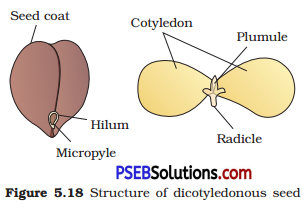
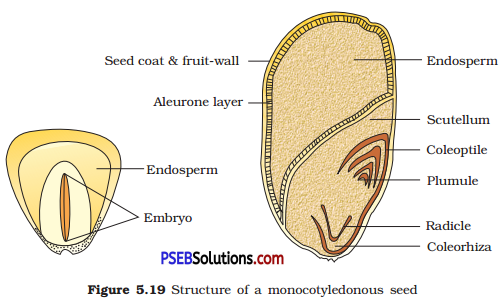
![]()

![]()
![]()

![]()
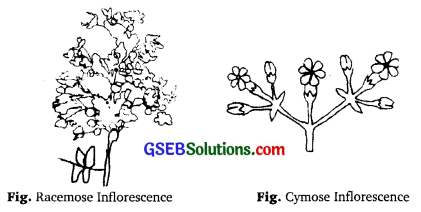
![]()
![]()

